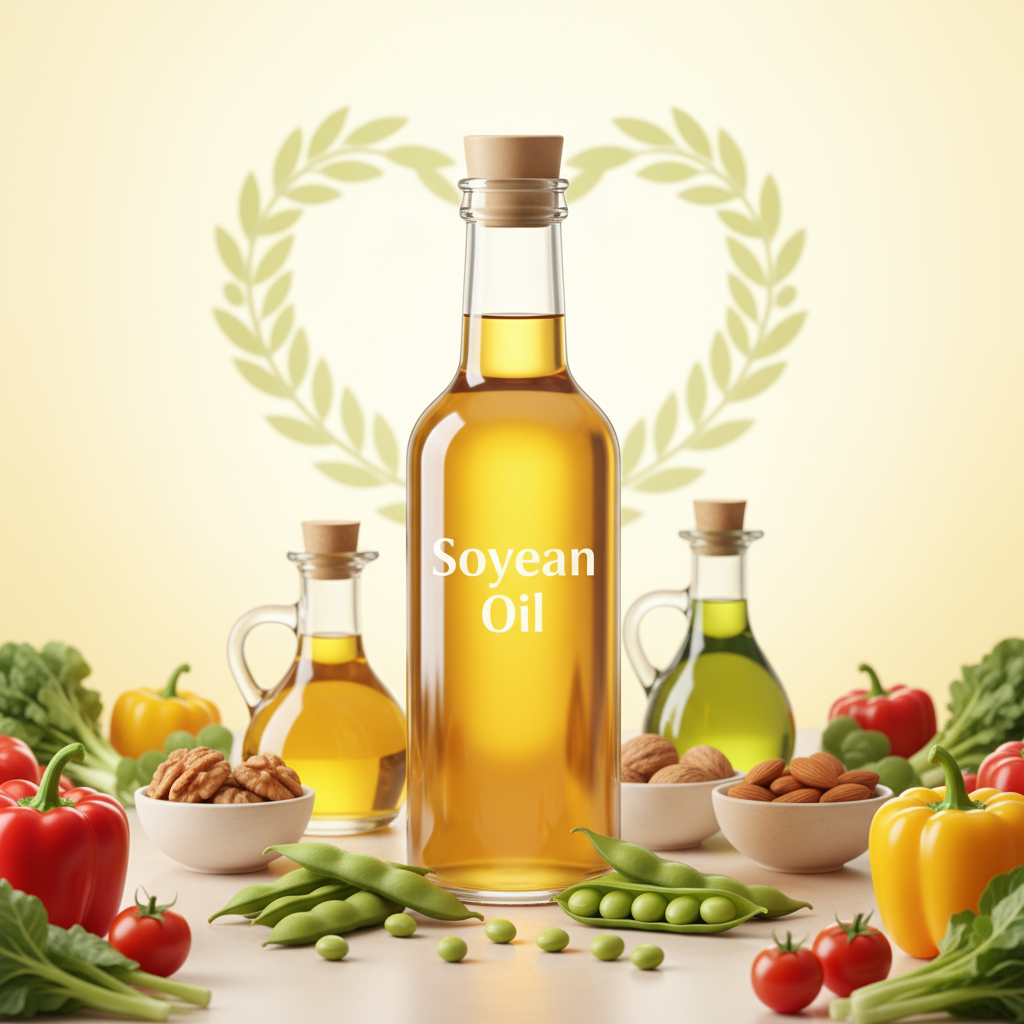
Can Soybean Oil Cause Allergic Reactions?
TL;DR
Soybean oil is often considered safe for individuals with soy allergies due to its low protein content. However, reactions can occur, particularly with unrefined oils. Soy allergies can manifest in two forms: IgE-mediated and non-IgE-mediated. Symptoms can range from mild to severe, including anaphylaxis. If you suspect a soy allergy, consult a healthcare provider for proper diagnosis and management.
Soybean oil is a common ingredient in many foods and products, but for those with soy allergies, the question arises: can soybean oil cause allergic reactions? Understanding the nature of soy allergies and the characteristics of soybean oil is crucial for individuals who need to manage their dietary restrictions effectively.
A soy allergy occurs when the immune system mistakenly identifies soy proteins as harmful. This reaction can lead to various symptoms, including skin rashes, gastrointestinal distress, and in severe cases, anaphylaxis. There are two main types of soy allergies:
This type involves the production of immunoglobulin E (IgE) antibodies in response to soy proteins. Symptoms can appear quickly after exposure and may include hives, swelling, difficulty breathing, and gastrointestinal issues. Anaphylaxis, a life-threatening reaction, is also possible.
These reactions do not involve IgE antibodies and typically manifest more slowly, often affecting the digestive system. Symptoms may include diarrhea, constipation, and stomach cramps. Conditions such as eosinophilic esophagitis (EoE) fall under this category.
Soybean oil is derived from soybeans but undergoes processing that often reduces its protein content significantly. As a result, many individuals with soy allergies can tolerate soybean oil, particularly if it is highly refined.
While most people with soy allergies can safely consume refined soybean oil, there is still a risk associated with unrefined oils. Individuals with a soy allergy should consult their healthcare provider to determine whether they need to avoid soybean oil entirely or if they can safely include refined versions in their diet.
If a person does have a reaction to soybean oil, symptoms can include:
In severe cases, anaphylaxis may occur, requiring immediate medical attention.
For most individuals with a soy allergy, refined soybean oil is generally safe to consume. However, caution is advised with unrefined oils. If you suspect you have a soy allergy or experience symptoms after consuming soybean oil, it is essential to consult with a healthcare provider for appropriate testing and management strategies.
By understanding the differences between refined and unrefined soybean oil and recognizing the symptoms of soy allergies, individuals can make informed dietary choices to protect their health.
Yes, while refined soybean oil is generally safe for most individuals with soy allergies due to its low protein content, unrefined soybean oil may still contain allergens and can trigger reactions.
Symptoms can vary and may include skin reactions (hives, rash), gastrointestinal issues (nausea, vomiting, diarrhea), and respiratory problems (wheezing, difficulty breathing). In severe cases, anaphylaxis may occur.
Refined soybean oil undergoes processing that removes most allergenic proteins, making it safer for those with soy allergies. Unrefined or cold-pressed soybean oil may still contain soy proteins and poses a higher risk for allergic reactions.
If you suspect you have a soy allergy or experience symptoms after consuming soybean oil, consult a healthcare provider for proper diagnosis and management. They can help determine whether you need to avoid soybean oil entirely or if refined versions are safe for you.

Does Soybean Oil Have Gluten? Understanding Its Safety for a Gluten-Free Diet
TL;DR Soybean oil is gluten-free as it is derived from soybeans, which do not contain gluten. However, caution is advised with processed soy products, as they may contain gluten due to cross-contamination or added ingredients. Alw...

Can Dogs Have Soybean Oil? A Comprehensive Guide
TL;DR Soybean oil is generally safe for dogs in moderation and can provide several nutritional benefits. While it is a source of healthy fats and may help with skin conditions, some dogs may experience digestive issues or allergie...

Is Soybean Oil Healthy? A Comprehensive Guide
TLDR Soybean oil is a widely used cooking oil known for its high levels of unsaturated fats and omega fatty acids. It carries an FDA-qualified health claim suggesting it may reduce the risk of coronary heart disease when consumed ...

What Mayonnaise Does Not Have Soybean Oil?
TL;DR If you're looking for mayonnaise that does not contain soybean oil, there are several options available. Notably, Wildly Organic offers a soy-free mayonnaise made with MCT oil, olive oil, and sesame oil. Other brands like Si...
Ready to source an ingredient?
Whether you’re struggling to find the perfect ingredient, racing against the clock, or simply don’t have the bandwidth to manage sourcing — we’ve got your back.
Get a Free Sourcing AuditSavings is BIG but the relationship value is MASSIVE! Glad we met when we did. Looking forward to building this partnership with you and David.
Yohan, here to say you’re one of my favorite suppliers. Aside from your high quality ingredients, you’re so great to work with. Thanks for all the help you’ve given us this year.
Working with Global Savors and Yohan has been very smooth when sourcing ingredients. They offer a great selection and and cost savings! Yohan has been awesome to work with and we look forward to continuing business together.






Global Savors is your trusted partner for seamless ingredient sourcing, offering end-to-end solutions that streamline procurement, simplify logistics, and elevate your supply chain efficiency.
View More News
© 2026 Copyrights by Global Savors. All Rights Reserved

